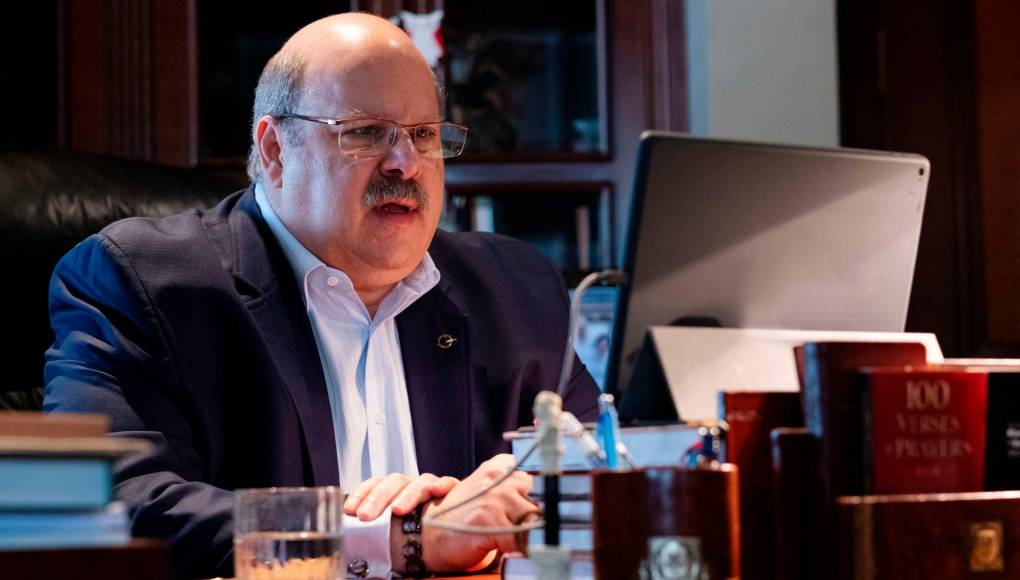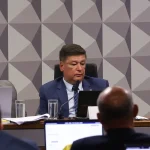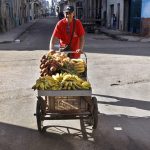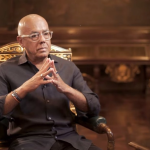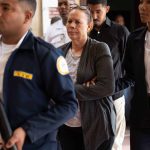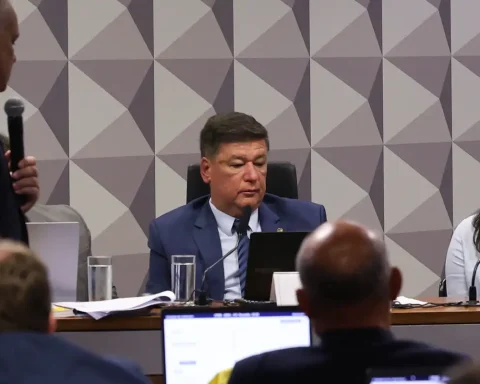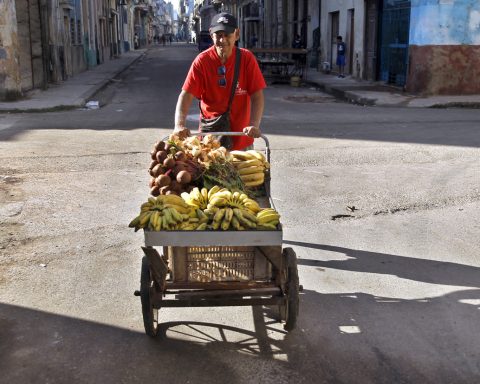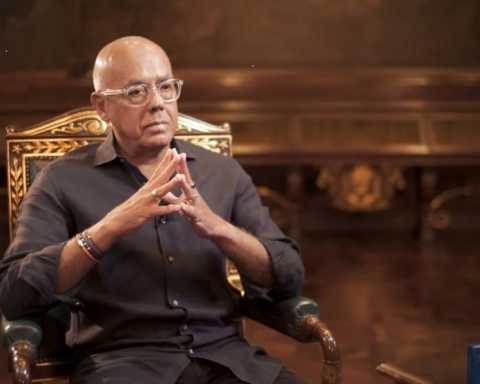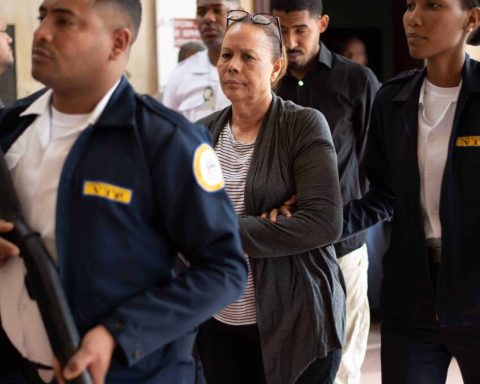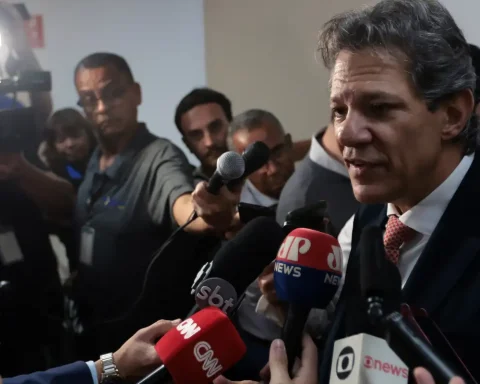The president of the Inter-American Press Association (IAPA), the Honduran Jorge Canahuati, pointed out that the recent officialization of the confiscation of the newspaper La Prensa, by the regime of Daniel Ortega and Rosario Murillo, is “another step” to silence everyone. the media in Nicaragua. A situation that, he warned, is worrying because it sets a negative precedent that can be replicated by other “non-democratic governments” of the American continent.
“There is no doubt that freedom of the press in our hemisphere has deteriorated in the last three or four years,” Canahuati warned during an interview with the director of the program. Tonight Y CONFIDENTIALCarlos Fernando Chamorro. “Central America, in particular, is an area that has triggered our concerns,” due to cases such as Nicaragua or Guatemala, where the director of The Newspaper, Ruben Zamora. These situations can motivate other regimes to “take action against the media or freedom of the press,” he continued.
For the president of the IAPA, “organizations like ours should not lose heart” in expressing their “concern, denunciation or condemnation of these abuses” of press freedom. “Nicaraguan journalism must be sure that from the IAPA we are going to continue present,” since “the worst that can happen is that this is normalized or forgotten.”
Last week the regime of Daniel Ortega illegally confiscated the newspaper La Prensa. What impact has this new attack on freedom of the press had on the newspapers of the American continent?
It really is another step by Mr. Ortega to silence the media. Any journalist who self-censors and we are not talking about any media outlet that is confiscated or closed, the repercussions are important, first for Nicaragua that loses an important voice and for Latin America in general it is worrying because a trend that has been seen recently to harass, to stigmatize, to threaten the media, from the United States to Argentina and Chile. What is the biggest concern you think of right now? It is that they are examples for other non-democratic governments to continue or that want to silence their critics.
Last year there was also the confiscation of the newspaper El Nacional in Venezuela, which together with La Prensa are two emblematic newspapers each from their countries. From the Inter American Press Association you have been following these crises, at this moment, what can be done from the IAPA?
The Inter American Press Association on April 19 presented jointly with 27 world organizations a statement on Nicaragua, in which we demand some actions to improve the situation of journalism and freedom of the press in your country, which ranged from asking the countries that receive journalists in exile, that there are already more than 300 journalists who are abroad for that I understand, even asking the multilateral financing organizations to require among their conditionalities to grant loans that freedom of the press or freedom of information be respected. We are not going to remain silent, we are going to continue insisting on denouncing these abuses, on denouncing all the illegal actions carried out by the Nicaraguan government against not only journalists but any element that may have a dissonant voice, such as the NGOs that recently closed the Ortega-Murillo government.
Despite the confiscation of La Prensa, Confidencial, 100% Noticias, and other media, we continue to do journalism from exile, disseminating content through the internet and social networks. How do you rate the international press’ coverage of the crisis in Nicaragua? Is there a fear that a kind of oblivion and normalization of this Nicaraguan dictatorship will take place?
There is no doubt that this is something real. I believe that organizations like ours should not lose heart in filing complaints and that is our commitment, it should not be silent, it should not be forgotten as you well expressed. The IAPA, not only in Nicaragua but before any minor or major expression as in the Nicaraguan or Venezuelan case, we are always there to express our concern, our complaint or our condemnation of these abuses. It is important to continue having these voices, they should not be forgotten and I think that Nicaraguan journalism should be sure that from the IAPA we will continue to be present, but yes, the worst that can happen is that this is normalized or forgotten.
You mentioned the bad example that this manifestation of impunity imposed in Nicaragua by Ortega towards other countries in the region. Is there any other specific concern about threats to freedom of the press?
There is no doubt that for those rulers who are sensitive or do not understand the importance of having a vigorous and free press in their countries (…) all these elements (abuses) that happen are examples and unfortunately the world crisis that the pandemic has left us has had an effect of a feeling that anything could happen and governments are making decisions that were previously much more cautious. In Guatemala, (Rubén) Zamora, an emblematic journalist, a journalist who in one way or another energized journalism in Guatemala. (Nayib) Bukele with his search for legal action against some of the most important newspapers (in El Salvador) or his characters and if that’s how we go down. We have a threatened Peru, we have a Colombia that the entire (electoral) campaign was stigmatizing against the media, a (Jair) Bolsonaro still active in Brazil.
There is no doubt that freedom of the press in our hemisphere has deteriorated in the last three or four years. Less democratic or more dictatorial attitudes have emerged with the excuse of this crisis that we have had in the world over the pandemic. So Central America in particular is an area that has triggered our concerns. In the case of Zamora, an incarceration that does not seem to be justified, a process in which they carried out an oversized raid on his facilities and so on. Yes there is concern. No doubt the enemies of freedom could use this to embolden you to take action against the media or press freedom.
How do you see the case of Nicaragua in the context of Central America?
I think what we are seeing is part of the diplomatic hypocrisy. There is no doubt that the actions of the government of Daniel Ortega and Mrs. Murillo go against not only freedom of the press but all freedoms. There is no doubt that in many countries the governments arrived with a flag of denunciation and protection of human rights in the past, but when these cases happen they go to the convenience. Yes, I would say that the Central American countries must do more, society must demand more so that this cancer of dictatorial, abusive, repressive governments cannot act without any consequences. I believe that the role of the media and associations such as the IAPA are important there and I hope that we can accompany them in creating that awareness in the Central American people of the great deterioration and the great threat that society has of deteriorating freedom of the press. .
